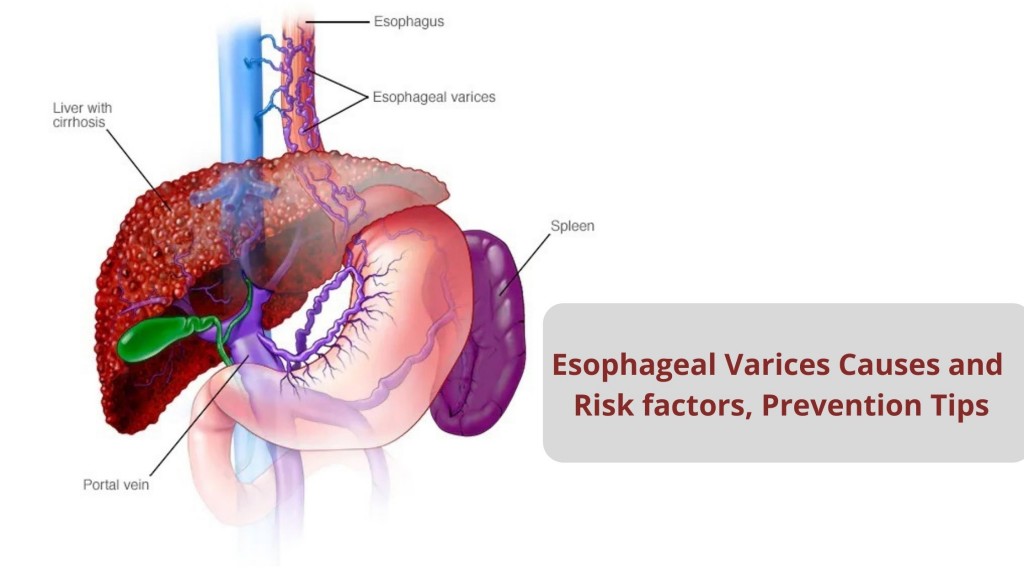

The oesophagus (or esophagus) is the tube that carries food from the throat to the stomach. In an adult human being, the muscular duct measures up to eight inches long. The oesophagus runs parallel behind the windpipe, heart, and in front of the spine. Before connecting to the stomach, it passes through the diaphragm.
The muscles in the esophagus play a significant role in passing the food to the stomach and holding the food inside before it turns into energy.
Among several, one of the principal complications that arise in the esophagus is the Esophageal Varices. In this condition, abnormal veins develop at the lower end of the tube. The veins are swollen or enlarged along the wall of the esophagus.
The condition usually goes undetected unless the veins bleed. Esophageal varices – a chronic disease, is manageable with proper medical support and guidance.
The primary cause for esophageal varices is the malfunctioning of the liver. People who have liver cirrhosis are under constant threat to develop this condition.
The liver cleanses toxins from the body. When the blood flow to this crucial organ is restricted, it flows into the nearby vessels, increasing the supply. Because of this esophagus is one of the several organs that receive excess blood. The blood vessels in the esophagus are small and incapable of carrying surplus blood, leading to swelling up and resulting in varices.
Other contributing factors leading to varices are:
Bleeding is the leading symptom that indicates the oesophageal varices. The rupturing of the veins results in one of the following conditions:
The other symptoms might include:
The symptoms in extreme cases where the bleeding is severe include:
Also, Read : Stomach Cancer – Causes, Symptoms, Diagnosis, and Treatment
The risk factor depends on the progression of the condition. Not everyone will start bleeding immediately after developing varices. The Esophageal varices bleed under the following conditions:
Correcting the underlying cause is the best way to prevent esophageal varices. A healthy diet and lifestyle to keep the body and the liver healthy is the way to avoid this chronic condition. Failing to accomplish that will cause complications and might lead to the replacement of the liver.
The following healthy measures should be part of daily lives to avoid this and any other health issue.
Endoscopic sclerotherapy is the process of shrinking the swollen veins using medications administered via endoscope.
B. Treating the bleeding
There is over one way to treat bleeding varices. All the preventive measures specified above can be used to stop or minimize the blood supply. In case the bleeding is severe, then the patient needs the following action:
Read More about the Signs of Ruptured Spleen
It is crucial to know the details of the condition and follow the doctors’ advice. Do not ignore the esophageal varices and self medicate, as it might cause complications. If you are in doubt, contact our doctors at Vydehi for more guidance and help. We are always around to facilitate, to get your health back in shape.
Disclaimer: The information included here is only for knowledge sharing purposes, and the blog is not intended to be a substitute for diagnosis, medical advice or treatment by a healthcare professional. Because of individual needs appropriate advice, the reader should consult their doctor to determine the appropriate disease depending on their situation.

 Emergency Number
Emergency Number